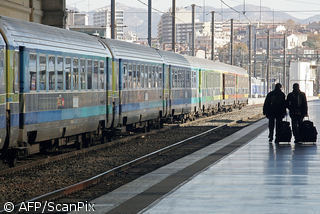It is the only source that can provide a chance for economic breakthrough
Published:
21 March 2005 y., Monday
Money from Russia’s Stabilisation Fund is expected to be invested abroad in dollar-nominated securities, with minimum investment risks and minimum profitability at 2-4%. These funds have until now been kept in Central Bank accounts. This means that a great deal of money will soon appear on the financial markets. On February 1, 2005, the Fund totaled 647.2 billion roubles ($23.1 billion), which mostly came from taxes on oil sales with prices exceeding $20 per barrel and export duties from oil companies.
The crucial question is how this money should be used. Money can only be taken out of the Fund when it has more than 500 billion roubles. Therefore, more than a fifth of its resources can already be used. This is a key issue for Russia’s economy, as the positive overseas market situation in recent years has been almost exclusively responsible for its growth.
However, experts are not tired of repeating that the potential of the resource-oriented Russian economy has been virtually exhausted. The mechanism whereby "we produce oil, sell it and enjoy the benefits" is becoming increasingly less effective. The country is now at a stage when it must introduce an industrial policy. However, any policy only makes sense when there is money to implement it.
Russia’s stock market and banking system do not provide the necessary financing for the real sector of the economy. Direct foreign investment in Russia remains at a very low level, while foreign investment in general is concentrated on either the import of equipment or foreign borrowings. The country obviously needs sources for further growth. The Stabilisation Fund is virtually the only potential source today and a genuine war is being waged for its funds.
Šaltinis:
financialexpress.com
Copying, publishing, announcing any information from the News.lt portal without written permission of News.lt editorial office is prohibited.
The most popular articles
 Between 2000 and 2008 EU27 trade in goods with China more than tripled in value, with EU27 exports to China rising to 78 billion euro in 2008 compared with 26 bn in 2000, and imports rising to 248 bn from 75 bn.
more »
Between 2000 and 2008 EU27 trade in goods with China more than tripled in value, with EU27 exports to China rising to 78 billion euro in 2008 compared with 26 bn in 2000, and imports rising to 248 bn from 75 bn.
more »
 The first estimate for the euro area (EA16) trade balance with the rest of the world in March 2009 gave a 0.4 bn euro surplus, compared with -2.3 bn in March 2008.
more »
The first estimate for the euro area (EA16) trade balance with the rest of the world in March 2009 gave a 0.4 bn euro surplus, compared with -2.3 bn in March 2008.
more »
 On May 18 this year, AB Bank SNORAS begins to distribute two emissions of one-year fixed interest bonds.
more »
On May 18 this year, AB Bank SNORAS begins to distribute two emissions of one-year fixed interest bonds.
more »
 Taking into account changes on international and domestic money markets AB DnB NORD Bankas, a member of international financial group, has changed time deposit rates for individual customers.
more »
Taking into account changes on international and domestic money markets AB DnB NORD Bankas, a member of international financial group, has changed time deposit rates for individual customers.
more »
 The 25-year Sri Lankan civil war looks to be in its final throes.
more »
The 25-year Sri Lankan civil war looks to be in its final throes.
more »
 The sheer scale and nature of taxpayers' cash claimed as allowances by Britain's lawmakers has stunned the nation.
more »
The sheer scale and nature of taxpayers' cash claimed as allowances by Britain's lawmakers has stunned the nation.
more »
 The European Commission has decided to send a formal request to Lithuania regarding the award of a works contract by Lithuania Railways for the modernisation of the railway radio communication system through the introduction of a GSM-R system.
more »
The European Commission has decided to send a formal request to Lithuania regarding the award of a works contract by Lithuania Railways for the modernisation of the railway radio communication system through the introduction of a GSM-R system.
more »
 The speed and depth of the financial crisis has been brutal and over the last year MEPs have been hard at work on a two-fold approach to the crisis.
more »
The speed and depth of the financial crisis has been brutal and over the last year MEPs have been hard at work on a two-fold approach to the crisis.
more »
 The Group commits to reducing its CO2 emissions by 30% by 2020 supporting the “20-20-20” goal set by the EU.
more »
The Group commits to reducing its CO2 emissions by 30% by 2020 supporting the “20-20-20” goal set by the EU.
more »
 This weekend, in the second round of Le Mans Series championship on SPA track, in Belgium, SNORAS Spyker Squadron team that participated there took the fifth high position.
more »
This weekend, in the second round of Le Mans Series championship on SPA track, in Belgium, SNORAS Spyker Squadron team that participated there took the fifth high position.
more »